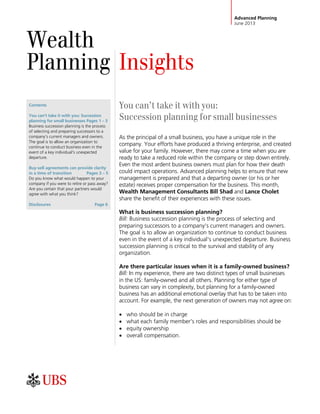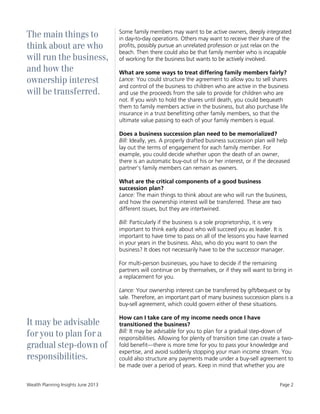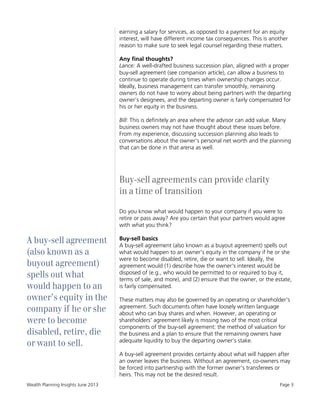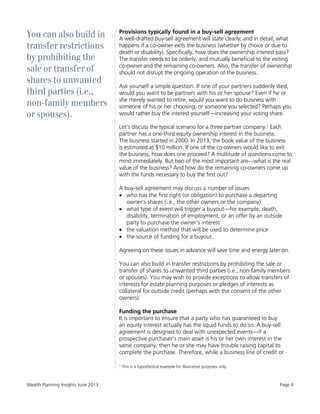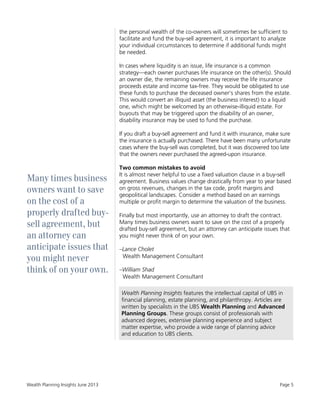Business succession planning involves selecting and preparing successors for a company's current managers and owners to allow the business to continue operating if a key individual departs unexpectedly. Succession planning is especially important for family-owned businesses to address issues like different family members' roles and compensation. A well-drafted succession plan and buy-sell agreement outlines what happens to an owner's equity if they retire, die, or become disabled, ensuring the departing owner or their estate is compensated and the business can continue smoothly under new ownership. Buy-sell agreements should specify valuation methods, funding sources like life insurance, and restrictions on transferring ownership to unwanted third parties. Seeking an attorney's help in drafting these agreements can anticipate issues and ensure all
